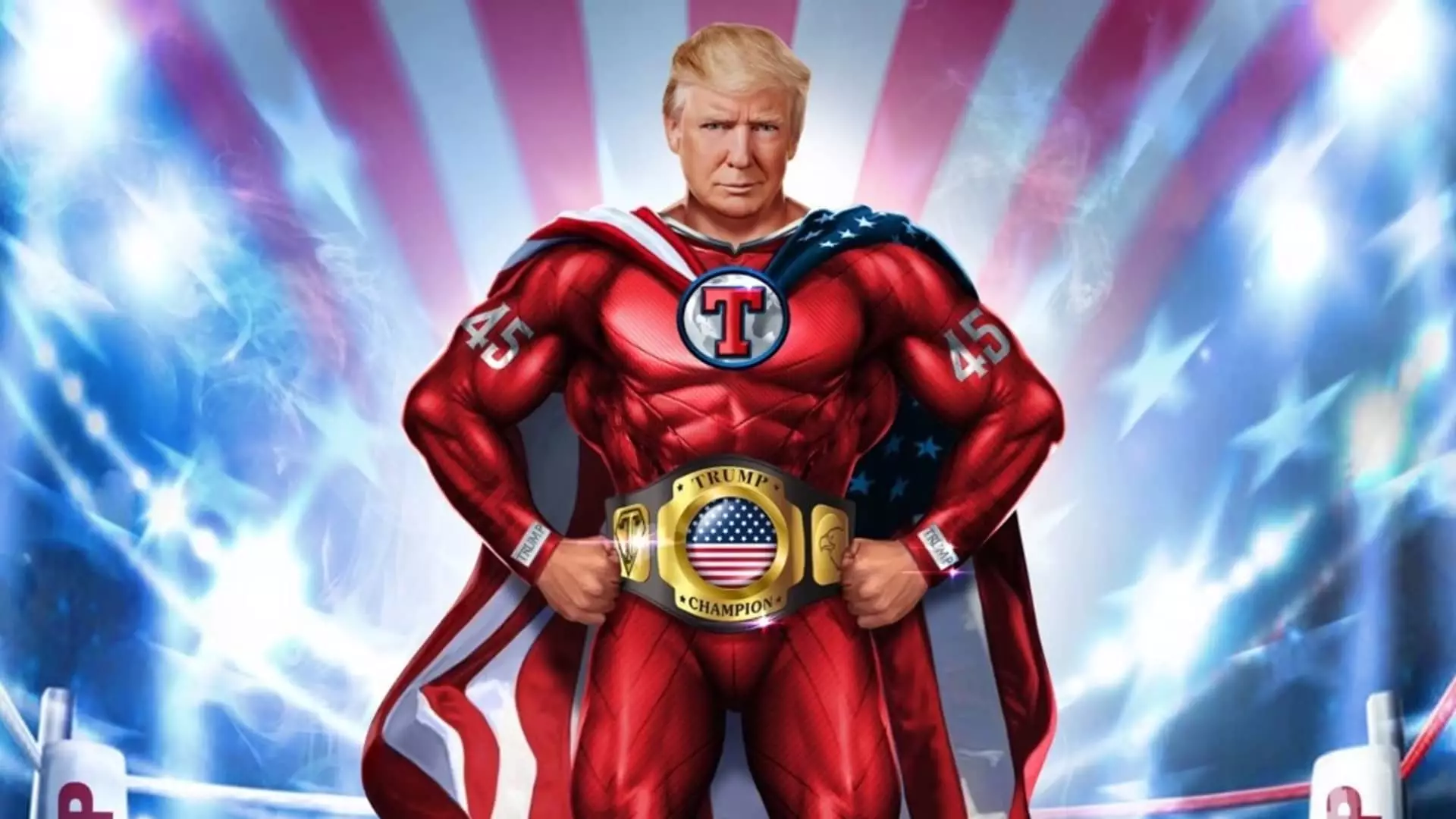Donald Trump’s foray into the world of cryptocurrency with his latest project, World Liberty Financial (WLF), has garnered both attention and skepticism as the presidential election approaches. The rumors of a burgeoning digital economy intertwined with a familiar name bring forth a multitude of questions for prospective investors. The initiative, as positioned by Trump, purports to be a revolutionary venture aimed at reshaping financial practices, yet the lack of substantial details raises red flags.
The announcement of the WLFI token launch—billed enthusiastically by Trump as an opportunity to “help shape the future of finance”—is shrouded in ambiguity. According to reports, WLF aspires to function similarly to a crypto bank, facilitating borrowing, lending, and investing. This proposition sounds appealing on the surface, yet critical questions arise: what specific services will be offered, and how will they operate? No comprehensive business plan or transparent white paper has been made available, leaving investors grappling with a fog of uncertainty.
Furthermore, potential stakeholders have been presented with the prospect of gaining voting rights on the platform’s governance. However, the notion that this governance represents anything substantive is dubious, especially when Folkman, one of the project’s co-founders, clarified that token ownership doesn’t equate to equity or economic rights. Such statements can create disillusionment for those looking to hold tangible stakes in this endeavor.
In the realm of finance, transparency is imperative, especially when dealing with ventures tied to celebrity figures. The proposed fundraising target for WLFI is set at $300 million with an eye-watering initial valuation of $1.5 billion. Yet, the entire process is categorized as a Regulation D token offering, which allows certain companies to raise capital without going through the traditional registration process with the U.S. Securities and Exchange Commission (SEC). This regulatory circumvention raises significant concerns, particularly as it permits the sale to only accredited investors—those whose financial status is a key barrier to entry.
With Trump holding around 57% of the equity in the larger Trump Media & Technology Group, the complexities surrounding his potential influence over WLF are troubling. Details from the WLF website suggest that significant portions of tokens will be allocated to the founding team, including members of the Trump family, indicating a profit motive potentially at odds with investor interests. Critics could easily construe this as a self-serving financial game if there is little to no real return for participants.
While cryptocurrencies have often operated on principles of decentralization and impartiality, Trump’s involvement complicates the narrative. The mention of ties to those with problematic backgrounds, such as Folkman’s past in ventures like Dough Finance—which encountered a significant hack—adds layers of scrutiny. Moreover, concerns voiced on platforms like the Aave governance forum signal distrust regarding WLF’s alignment with reputable financial protocols.
The cryptosphere thrives on community and trust, and affiliations with questionable characters could erode the credibility essential for a successful project. Emphasizing concerns voiced by community members about the implications of WLF’s association with individuals labeled as having “questionable backgrounds” showcases the sensitivity required in this digital age.
As WLF gears up for its official token launch, apprehensive investors are left in a precarious position. The token sale is structured almost like an “IOU,” with participants speculating their tokens’ future value tied intricately to the approval and successful launch of the wider platform. This creates an environment rife with risk and unpredictability—factors that potential investors must weigh carefully before diving into what could be an unstable digital venture.
With ongoing discussions and promotional efforts escalating, the final framework of World Liberty Financial is yet to be solidified. Those interested are effectively buying into an idea rather than a fully-fledged product. While on the surface, the allure of rapid financial revolution under Trump’s name may seem enticing, the underlying vagueness, possible ulterior motives, and a warped reality of investor rights loom large. As the cryptocurrency landscape grows increasingly crowded, entities like WLF will need to overcome these initial hurdles to convert curiosity into substantive trust and confidence.


Leave a Reply